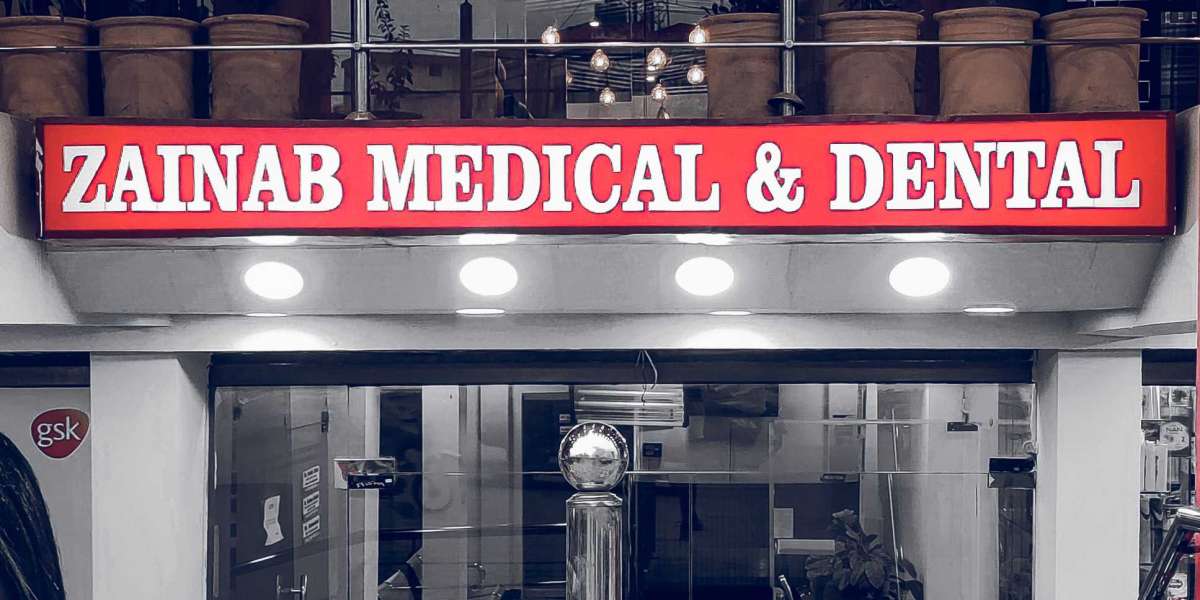Maintaining strong and healthy gums is essential for overall oral health. Whether you visit a Dental Clinic in Islamabad or follow a proper home care routine, gum care plays a vital role in preventing oral diseases like gingivitis and periodontitis. Healthy gums not only support your teeth but also protect you from severe health complications linked to poor oral hygiene, such as heart disease and diabetes.
This comprehensive guide covers everything you need to know about gum care, including daily practices, professional treatments, and advanced preventive techniques.
Why Gum Care is Essential
Gums are the foundation of your oral structure. Neglecting them can lead to:
Gingivitis – Early stage of gum disease with swelling and bleeding.
Periodontitis – Advanced gum disease causing tooth loss.
Receding gums – Exposing tooth roots, leading to sensitivity.
Overall health risks – Studies link gum disease to cardiovascular issues.
Fact: According to dental health studies, 47% of adults over 30 experience some form of gum disease, making early prevention critical.
Signs You Need to Improve Gum Care
Recognizing early warning signs can help you take timely action:
| Symptom | Possible Issue |
|---|---|
| Bleeding while brushing | Gingivitis or poor brushing habits |
| Persistent bad breath | Bacteria buildup |
| Swollen, red gums | Inflammation |
| Receding gum line | Periodontitis |
| Loose teeth | Advanced gum disease |
If you notice these symptoms, book an appointment at a Dental Clinic in Islamabad immediately for professional evaluation.
Daily Gum Care Routine
1. Brushing Technique
Use a soft-bristled toothbrush to avoid gum damage.
Brush at a 45-degree angle, focusing on the gum line.
Spend at least 2 minutes brushing twice a day.
Opt for fluoride toothpaste to strengthen teeth and gums.
2. Flossing
Flossing removes plaque and food particles where toothbrushes can’t reach.
Tips for Effective Flossing:
Use 18 inches of floss, wrapping most around each middle finger.
Slide the floss gently between teeth.
Curve it into a “C” shape around each tooth for deep cleaning.
3. Mouthwash
An antibacterial mouthwash helps reduce harmful bacteria and freshens breath.
Choose alcohol-free mouthwash to prevent gum irritation.
Rinse for 30 seconds after brushing and flossing.
4. Balanced Diet for Gum Health
What you eat directly impacts your gum health.
| Nutrient | Benefits | Food Sources |
|---|---|---|
| Vitamin C | Strengthens gums | Citrus fruits, strawberries |
| Calcium | Builds strong teeth and bones | Dairy, leafy greens |
| Omega-3 Fatty Acids | Reduces inflammation | Fish, flaxseeds |
| Antioxidants | Protect against bacteria | Berries, green tea |
Professional Gum Care Treatments
Even with a good home routine, professional care is crucial. Regular check-ups at a Dental Clinic in Islamabad help detect and treat issues early.
1. Scaling and Root Planing
Deep cleaning to remove plaque and tartar from below the gum line.
Recommended for those with early signs of gum disease.
2. Laser Therapy
Minimally invasive treatment to kill bacteria and promote gum regeneration.
3. Gum Surgery
Required in severe cases of periodontitis to repair damaged gum tissue.
Tips for Long-Term Gum Health
Visit the dentist twice a year for check-ups and cleaning.
Avoid smoking, which significantly increases gum disease risk.
Stay hydrated to maintain healthy saliva levels.
Replace your toothbrush every 3-4 months.
Manage stress, as it can weaken your immune system and gums.
How Dental Clinics in Islamabad Can Help
Modern Dental Clinics in Islamabad offer advanced gum care services, including:
Digital diagnostics for early detection.
Customized treatment plans based on gum health condition.
Preventive education and personalized home care routines.
Local clinics also provide access to experienced periodontists, ensuring comprehensive gum care for patients of all ages.
Frequently Asked Questions (FAQs)
Q1. How often should I visit a dentist for gum care?
You should visit a dentist every 6 months for routine cleaning and check-ups. If you have gum disease, more frequent visits may be required.
Q2. Can gum disease be reversed?
Yes, gingivitis, the early stage of gum disease, can be reversed with proper care and professional treatment. Advanced stages like periodontitis require ongoing management.
Q3. What’s the best toothbrush for gum health?
A soft-bristled toothbrush or an electric toothbrush with pressure control is ideal to prevent gum damage.
Q4. Does diet really affect gum health?
Absolutely! A nutrient-rich diet strengthens gums and boosts immunity, reducing the risk of infections.
Q5. Is bleeding while brushing normal?
No, bleeding is a sign of gum inflammation or gingivitis. Consult a dentist immediately if this persists.
Quick Gum Care Checklist
Brush twice daily with fluoride toothpaste
Floss once a day
Use antibacterial mouthwash
Eat a balanced, nutrient-rich diet
Avoid smoking and alcohol
Schedule regular dental visits
Stay hydrated
Interactive Gum Care Table: Prevention vs Treatment
| Prevention | Treatment |
|---|---|
| Daily brushing flossing | Scaling root planing |
| Healthy diet with vitamins | Antibiotics for infection |
| Regular dental check-ups | Laser gum therapy |
| Avoiding tobacco stress | Gum graft surgery |
| Mouthwash to kill bacteria | Periodontal maintenance plans |



